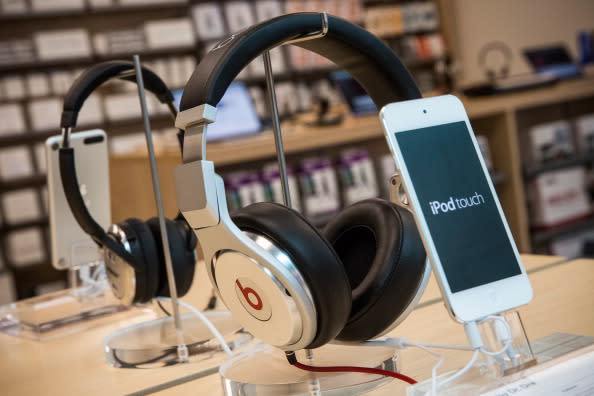Beats sues Chinese counterfeiters alleging losses of billions of dollars

Beats Electronics -- soon to be under the Apple umbrella if all goes according to plan -- is suing Chinese counterfeiters for illegally manufacturing and selling fake Beats headphones and accessories.
According to the lawsuit, the defendants at issue work in concert to create hundreds, if not thousands, of websites which purport to sell authentic Beats products. In doing so, these websites typically display Beats trademarks along with copyrighted images and product descriptions to help convince visitors that everything is above board. As a result, average visitors have a tough time differentiating the fake websites from those which are actually authorized to sell Beats products.
The Defendant Internet Stores share unique identifiers, such as website design and similarities of the Counterfeit Beats Products offered for sale, establishing a logical relationship between them and suggesting that Defendants' counterfeiting operation arises out of the same transaction, occurrence, or series of transactions
or occurrences. Defendants attempt to avoid liability by going to great lengths to conceal both their identities and the full scope and interworking of their counterfeiting operation. Beats is forced to file these actions to combat Defendants' unauthorized counterfeiting of the registered Beats trademarks, as well as to protect unknowing consumers from purchasing Counterfeit Beats Products over the Internet.
As for the defendants at issue, the complaint notes that while they reside in China, they conduct business throughout the state of Illinois. Impressively, and pointing to the large scale nature of the counterfeiting operation, Beats claims that the collection of websites selling counterfeit Beats products receive tens of millions of visitors each year and can generate upwards of $135 billion in annual online sales.
As a quick example, this representative website is full of counterfeit Beats products, with some items that might typically cost $300 available for just $5. You might also notice that the design of the website itself appears to be lifted directly from Amazon.
Apple itself has a long history of dealing with Chinese counterfeiters, going all the way back to the days when the iPod reigned supreme. But Apple-oriented counterfeiting truly exploded once the iPhone took off, prompting Apple in 2008 to organize its own security team to help stem the proliferation of counterfeit iPod and iPhones.
On this topic, CNN reported the following a few years ago:
Members of Apple's recently formed global security team were recruited from Pfizer after they executed a series of crackdowns on counterfeit Viagra production in Asia, the report says.
John Theriault, formerly Pfizer's security chief and, before that, a special agent for the Federal Bureau of Investigation, leads Apple's global security unit. Don Shruhan, who worked for Theriault at Pfizer, is now a director on Apple's security team in Hong Kong.
Shruhan told the Beijing embassy official that his group at Pfizer spent five years planning raids on counterfeit drug rings, the cable says. He said he's "afraid" of the volume of imitation Apple products being produced in China and about the inexperience of Apple's lawyers in dealing with Chinese authorities, the report says.
Theriault, if the name sounds familiar, stepped down from his position at Apple following a lost iPhone 4s investigation that wasn't handled as well as it should have been, which is to say that Apple security personnel impersonated San Francisco police officers.
In any event, one can only assume that Apple's experience and expertise in battling counterfeit products will help Beats do the same.

